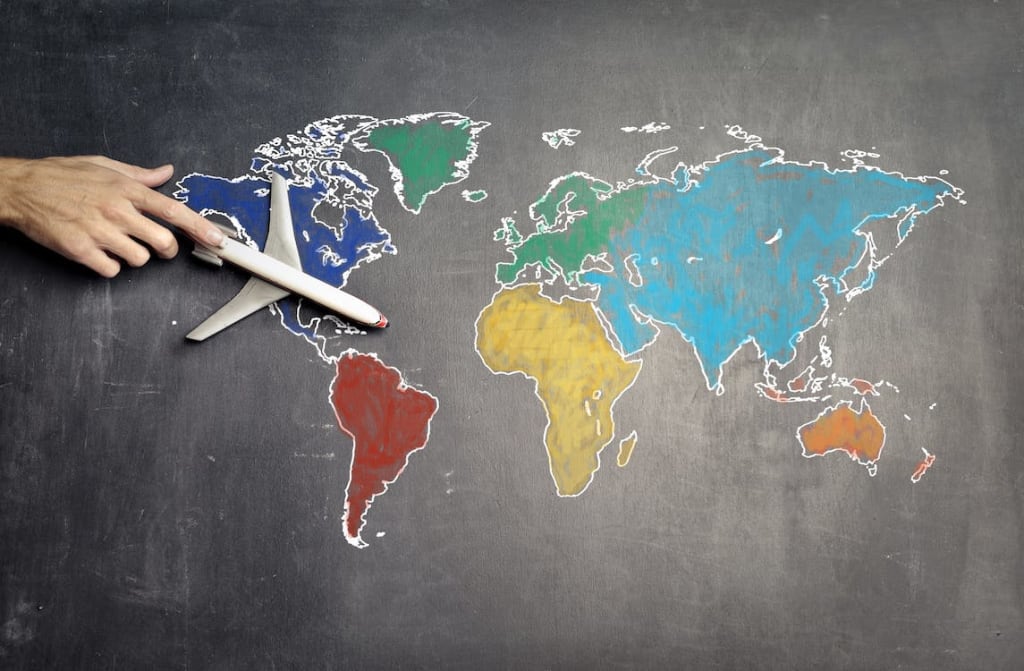Global challenges
"Addressing Complex and Interconnected Global Challenges for a Sustainable Future"

Global challenges are problems that affect the entire world, regardless of geographical location or socio-economic status. These challenges are complex and often require collective action to address. In this essay, we will explore some of the most pressing global challenges facing the world today.
One of the most significant global challenges is climate change. The Earth's climate is changing at an unprecedented rate, with rising temperatures, sea levels, and extreme weather events. This is largely due to human activities such as burning fossil fuels and deforestation. Climate change is causing widespread environmental, social, and economic impacts, including food and water insecurity, displacement of people, and loss of biodiversity. Addressing climate change requires global cooperation and significant efforts to reduce greenhouse gas emissions, transition to renewable energy sources, and adapt to the changing climate.
Another major global challenge is poverty and inequality. Despite significant progress in reducing poverty in some regions, millions of people around the world still live in extreme poverty. This is often linked to inequality, which is perpetuated by factors such as discrimination, lack of access to education and healthcare, and unequal distribution of resources. Poverty and inequality have significant social and economic impacts, including reduced life expectancy, limited opportunities, and social unrest. Addressing poverty and inequality requires a multi-faceted approach, including investment in education, healthcare, and social safety nets, as well as policies to promote economic growth and reduce discrimination.
Global health is also a significant challenge facing the world today. The COVID-19 pandemic has highlighted the vulnerability of global health systems and the need for strong public health infrastructure. In addition to infectious diseases, non-communicable diseases such as cancer and diabetes are also on the rise, particularly in low- and middle-income countries. Access to healthcare is often limited in these regions, and there is a significant shortage of healthcare workers. Addressing global health challenges requires investment in healthcare infrastructure and workforce, as well as policies to promote disease prevention and access to healthcare services.
Another global challenge is the refugee and migration crisis. Millions of people around the world are displaced due to conflict, persecution, or environmental disasters. This has significant social, economic, and political impacts, including increased poverty and inequality, strained resources, and social tensions. Addressing the refugee and migration crisis requires global cooperation and efforts to address the root causes of displacement, as well as policies to support refugees and migrants and promote their integration into host communities.
Finally, global security and peace are also significant challenges facing the world today. Conflict and violence continue to affect many regions, with devastating impacts on human life and infrastructure. Terrorism and extremism are also on the rise, with global implications. Addressing global security and peace requires collective efforts to promote conflict resolution, peace-building, and disarmament, as well as efforts to address the root causes of conflict, including poverty, inequality, and discrimination.
In conclusion, global challenges are complex and require collective action to address. Climate change, poverty and inequality, global health, the refugee and migration crisis, and global security and peace are just some of the challenges facing the world today. Addressing these challenges requires global cooperation and significant efforts to promote sustainable development, human rights, and social justice. As individuals, we can also play a role in addressing these challenges by advocating for policies and actions that promote positive change.
In addition to the challenges mentioned above, there are other global challenges that need to be addressed, such as gender inequality, access to education, and digital divide. Gender inequality affects women and girls around the world, limiting their opportunities and perpetuating discrimination. Access to education is also a significant challenge, particularly in low- and middle-income countries, where many children are unable to attend school due to poverty, conflict, and discrimination. The digital divide is another challenge, with millions of people around the world lacking access to digital technologies and the internet, limiting their ability to participate in the global economy and society. Addressing these challenges requires innovative solutions and policies that promote equality, access, and inclusion.
I Hope You Will Enjoy Thank you for reading this. If you liked my writing, please subscribe, comment and click the heart.
About the Creator
Mehwish Khan
I bring 1 years of professional to the sacred process of writing. I am a published my own Artical My passion, skill, and experience place me in a unique position to assist individual and organizational clients.






Comments (2)
Great Artical
Great Aritcal plz subcribe ,like and visit more for my profile and also follow me on instagram Account "itshijabiqueen57 :https://www.instagram.com/its_hijabi_queen57/" if you want any artical writer then contact me on my insta id